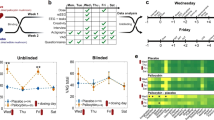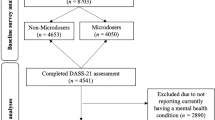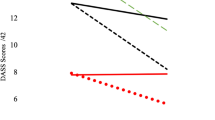Abstract
Psychedelic drugs, when used in the context of psychotherapy, can produce significant and long-lasting memories with enduring beneficial effects. Yet, the behavioral and neurobiological mechanisms that underlie these beneficial effects remain a mystery. Here, we suggest that both the quality and durability of memories of the drug-facilitated therapeutic experience may be mediated, in part, by the acute stress responses induced by the drugs. It is known that high doses of psychedelic drugs activate autonomic and hormonal stress responses. For evolutionarily adaptive reasons, acute stress is known to i) instill meaning to the immediate context in which it is experienced, and ii) lead to the formation of salient and lasting memories of the events surrounding the stress. Thus, the stress-inducing effect of psychedelic drugs may contribute to the reported sense of meaning, as well as the durability of the memory of the drug experience. When used in a therapeutic context these actions may i) enhance the salience of insights gained during the experience and ii) strengthen the memories formed by these experiences. Future empirical studies will help to determine whether acute stress contributes to the emotional significance and lasting effects of psychedelic-assisted psychotherapy.
This is a preview of subscription content, access via your institution
Access options
Subscribe to this journal
Receive 13 print issues and online access
$259.00 per year
only $19.92 per issue
Buy this article
- Purchase on Springer Link
- Instant access to full article PDF
Prices may be subject to local taxes which are calculated during checkout
Similar content being viewed by others
References
Griffiths RR, Richards WA, McCann U, Jesse R. Psilocybin can occasion mystical-type experiences having substantial and sustained personal meaning and spiritual significance. Psychopharmacology. 2006;187:268–83.
Hasler F, Grimberg U, Benz MA, Huber T, Vollenweider FX. Acute psychological and physiological effects of psilocybin in healthy humans: a double-blind, placebo-controlled dose–effect study. Psychopharmacology. 2004;172:145–56.
Holze F, Ley L, Müller F, Becker AM, Straumann I, Vizeli P, et al. Direct comparison of the acute effects of lysergic acid diethylamide and psilocybin in a double-blind placebo-controlled study in healthy subjects. Neuropsychopharmacology. 2022;47:1180–7.
Schwabe L, Hermans EJ, Joëls M, Roozendaal B. Mechanisms of memory under stress. Neuron. 2022;110:1450–67.
Schwabe L, Wolf OT, Oitzl MS. Memory formation under stress: quantity and quality. Neurosci Biobehav Rev. 2010;34:584–91.
Goldfarb EV. Enhancing memory with stress: progress, challenges, and opportunities. Brain Cogn. 2019;133:94–105.
Vine SJ, Moore LJ, Wilson MR. An integrative framework of stress, attention, and visuomotor performance. Front Psychol. 2016;7:1671.
Shields GS, Hunter CL, Yonelinas AP. Stress and memory encoding: What are the roles of the stress-encoding delay and stress relevance? Learn Mem. 2022;29:48–54.
Qi M, Gao H. Acute psychological stress promotes general alertness and attentional control processes: an ERP study. Psychophysiology. 2020;57:e13521.
Joëls M, Pu Z, Wiegert O, Oitzl MS, Krugers HJ. Learning under stress: how does it work? Trends Cogn Sci. 2006;10:152–8.
Bierbrauer A, Fellner MC, Heinen R, Wolf OT, Axmacher N. The memory trace of a stressful episode. Curr Biol. 2021;31:5204–5213.e8.
Freund IM, Peters J, Kindt M, Visser RM. Emotional memory in the lab: Using the Trier Social Stress Test to induce a sensory-rich and personally meaningful episodic experience. Psychoneuroendocrinology. 2023;148:105971.
Henckens MJ, Hermans EJ, Pu Z, Joëls M, Fernández G. Stressed memories: how acute stress affects memory formation in humans. J Neurosci. 2009;29:10111–9.
Conway CN, Baker LE. Lysergic Acid Diethylamide produces anxiogenic effects in the rat light/dark test and elevated plus maze. Psi Chi J Psychological Res. 2022;27:3.
Davis AK, Barrett FS, May DG, Cosimano MP, Sepeda ND, Johnson MW, et al. Effects of psilocybin-assisted therapy on major depressive disorder: a randomized clinical trial. JAMA Psychiatry. 2021;78:481–9.
Goodwin GM, Aaronson ST, Alvarez O, Arden PC, Baker A, Bennett JC, et al. Single-dose psilocybin for a treatment-resistant episode of major depression. N Engl J Med. 2022;387:1637–48.
Johnson MW, Griffiths RR. Potential therapeutic effects of psilocybin. Neurotherapeutics. 2017;14:734–40.
Ross S, Agrawal M, Griffiths RR, Grob C, Berger A, Henningfield JE. Psychedelic-assisted psychotherapy to treat psychiatric and existential distress in life-threatening medical illnesses and palliative care. Neuropharmacology. 2022;216:109174.
Braslow JT. History and evidence-based medicine: lessons from the history of somatic treatments from the 1900s to the 1950s. Ment Health Serv Res. 1999;1:231–40.
Carhart-Harris RL, Friston KJ. REBUS and the anarchic brain: toward a unified model of the brain action of psychedelics. Pharm Rev. 2019;71:316–44.
Vollenweider FX, Preller KH. Psychedelic drugs: neurobiology and potential for treatment of psychiatric disorders. Nat Rev Neurosci. 2020;21:611–24.
Author information
Authors and Affiliations
Contributions
HdW wrote the manuscript, and MH and AKB provided valuable input and suggestions.
Corresponding author
Ethics declarations
Competing interests
HdW is supported by PHS DA02812. HdW is a scientific advisor for Gilgamesh Pharmaceuticals and Awakn Life Sciences, and serves on the Board of Directors of PharmAla Biotech. MH is supported by the Swedish Research Council 2013–07434 and the Knut and Alice Wallenberg Foundation. He has in the past 5 years received consulting fees, research support, or other compensation from Indivior, Camurus, Molteni, BrainsWay, Aelis Farma, Lundbeck and Janssen Pharmaceuticals, and he is an Associate Editor of Neuropsychopharmacology. AKB has nothing to disclose.
Additional information
Publisher’s note Springer Nature remains neutral with regard to jurisdictional claims in published maps and institutional affiliations.
Rights and permissions
Springer Nature or its licensor (e.g. a society or other partner) holds exclusive rights to this article under a publishing agreement with the author(s) or other rightsholder(s); author self-archiving of the accepted manuscript version of this article is solely governed by the terms of such publishing agreement and applicable law.
About this article
Cite this article
de Wit, H., Heilig, M. & Bershad, A.K. Does acute stress play a role in the lasting therapeutic effects of psychedelic drugs?. Neuropsychopharmacol. 48, 1422–1424 (2023). https://doi.org/10.1038/s41386-023-01642-z
Received:
Revised:
Accepted:
Published:
Issue Date:
DOI: https://doi.org/10.1038/s41386-023-01642-z



